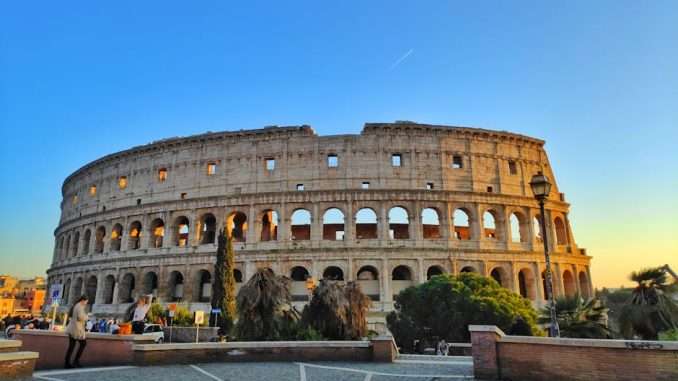
In the charming town of Marske, situated within Teesside, an intricate dilemma unfolds, emblematic of the age-old tension between the relentless thrust of modern development and the quiet resonance of a storied past. At the heart of the matter is a proposed housing estate comprising 800 dwellings, a plan that stands to profoundly transform the character of a land once traversed by Roman legions. This contention is more than a parochial dispute; it represents a broader discourse on the precedence of heritage conservation over the pursuit of future advancement.
Read more about sustainable development.
At the forefront of the debate is the historically significant Longbeck Road site, surmised to be a fragment of an expansive Roman settlement that once stretched across the region. The work of esteemed archaeologist Kendra Quinn has been pivotal, unearthing substantial evidence of sustained occupancy, thereby enhancing the site’s importance and contributing to a more comprehensive understanding of the region’s historical fabric. Her discoveries have galvanized local campaigners and concerned citizens, inciting a fervent quest to obstruct the residential development spearheaded by Taylor Wimpey and Miller Homes.
The developers’ assurances of conducting thorough archaeological assessments in accordance with established protocols have done little to assuage local apprehensions. The trepidation that pervades the community is grounded in the recognition that any harm inflicted upon this archaeological treasure would be irremediable, rendering a millennia-old narrative silent. The Longbeck Road site is perceived not merely as a tract of land but as a conduit to bygone eras that residents are vehemently striving to protect for posterity.
The local authority’s endorsement of the housing project has only intensified public opposition, igniting a fervent debate on the appropriate equilibrium between development and preservation. The protests that have materialized adjacent to the Roman remnants are a manifestation of resistance to change and a call for acknowledgment of the historical significance that extends beyond the physical, touching upon the emotional connection the community holds with its lineage.
Despite Taylor Wimpey and Miller Homes avowing their commitment to the safeguarding of the site from the detrimental effects of inclement weather and other environmental threats, such assurances have scarcely mitigated the skepticism of the populace. The community’s unease is propelled by the prospective loss of a fundamental aspect of their collective narrative. The Roman settlement represents an intrinsic part of the region’s identity and shared memory, transcending mere archaeological fascination.
The ongoing archaeological scrutiny is imperative in delineating the complete historical narrative of the site and in assessing the full extent of the impact the housing development might engender. The imperative to shield Longbeck Road from environmental degradation and other perils is unequivocal, yet the true challenge lies in enacting preservation strategies that maintain the integrity of the site’s historical narrative without compromise.
The protest in Marske has echoes far beyond its local ramifications, reflecting a wider global conversation on the tension between urban development and historical conservation. The robust engagement of the community in the preservation campaign underscores the intrinsic value of the Longbeck Road site, not simply as a parcel of land but as an essential chapter in the broader human story. Their efforts to defend this historical jewel affirm a universally acknowledged truth: our history is invaluable, warranting protection against the unyielding currents of development.
As developers cast their gaze towards the horizon, the Marske community stands as a stark reminder of the nuanced relationship between progress and the stewardship of cultural legacies. The intense debate surrounding the destiny of the Longbeck Road site transcends the mere fate of a plot of land; it is indicative of our collective will to uphold the historical fabric that serves as the foundation of our societies. The entreaties of the campaigners, echoing across the ages, call for a judicious approach to development that reveres and perpetuates the endowment of our forebears.
The contention over Marske is a microcosm of the larger struggle to reconcile the foundations of our history with the exigencies of the present. As the standoff persists, the future of the Longbeck Road site – and, by extension, our dedication to preserving our historical heritage – hangs in the balance. The outcome of this strife will not only define the visage of Marske but will also stand as a testament to our capacity to honour history whilst forging ahead into the future.


Be the first to comment